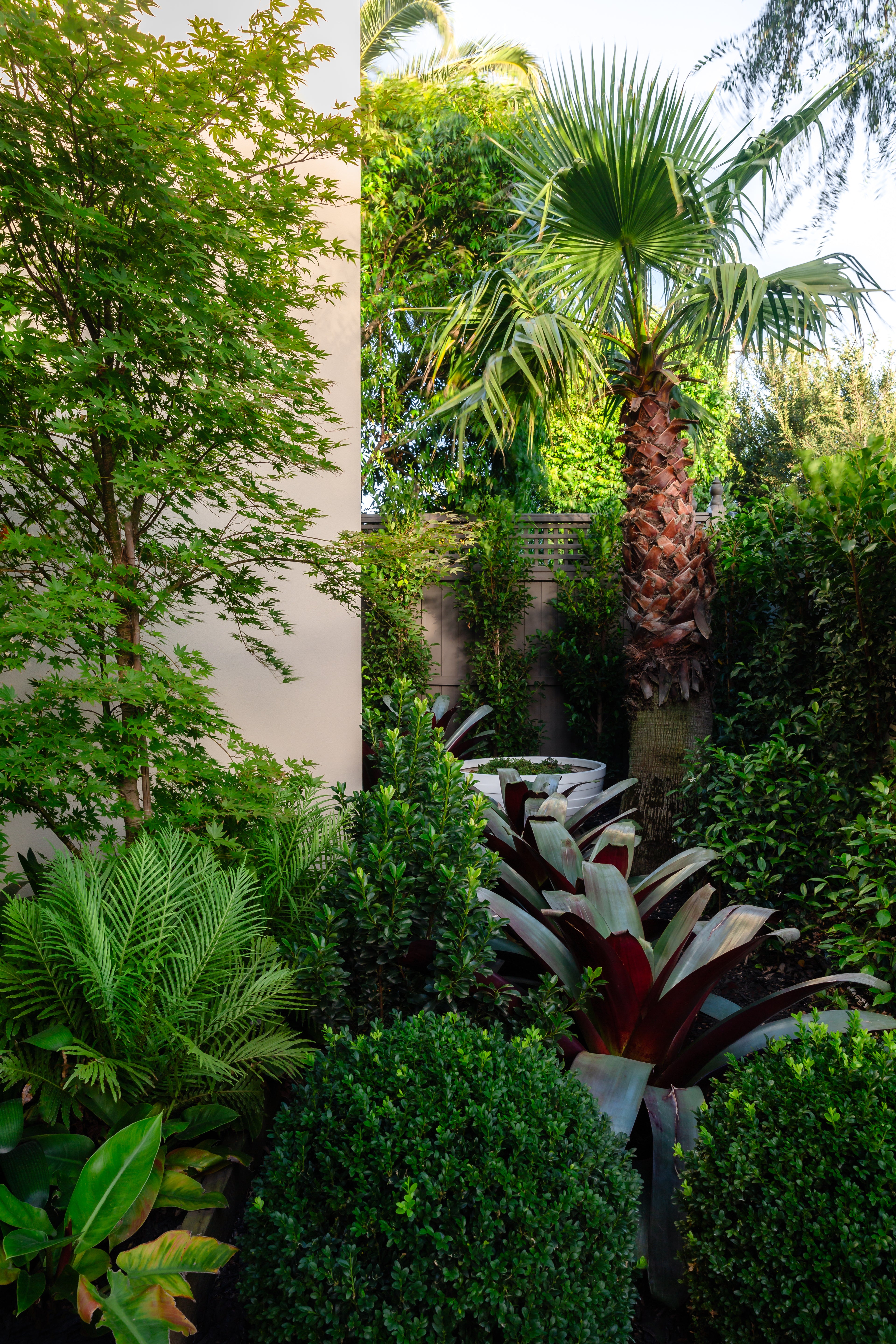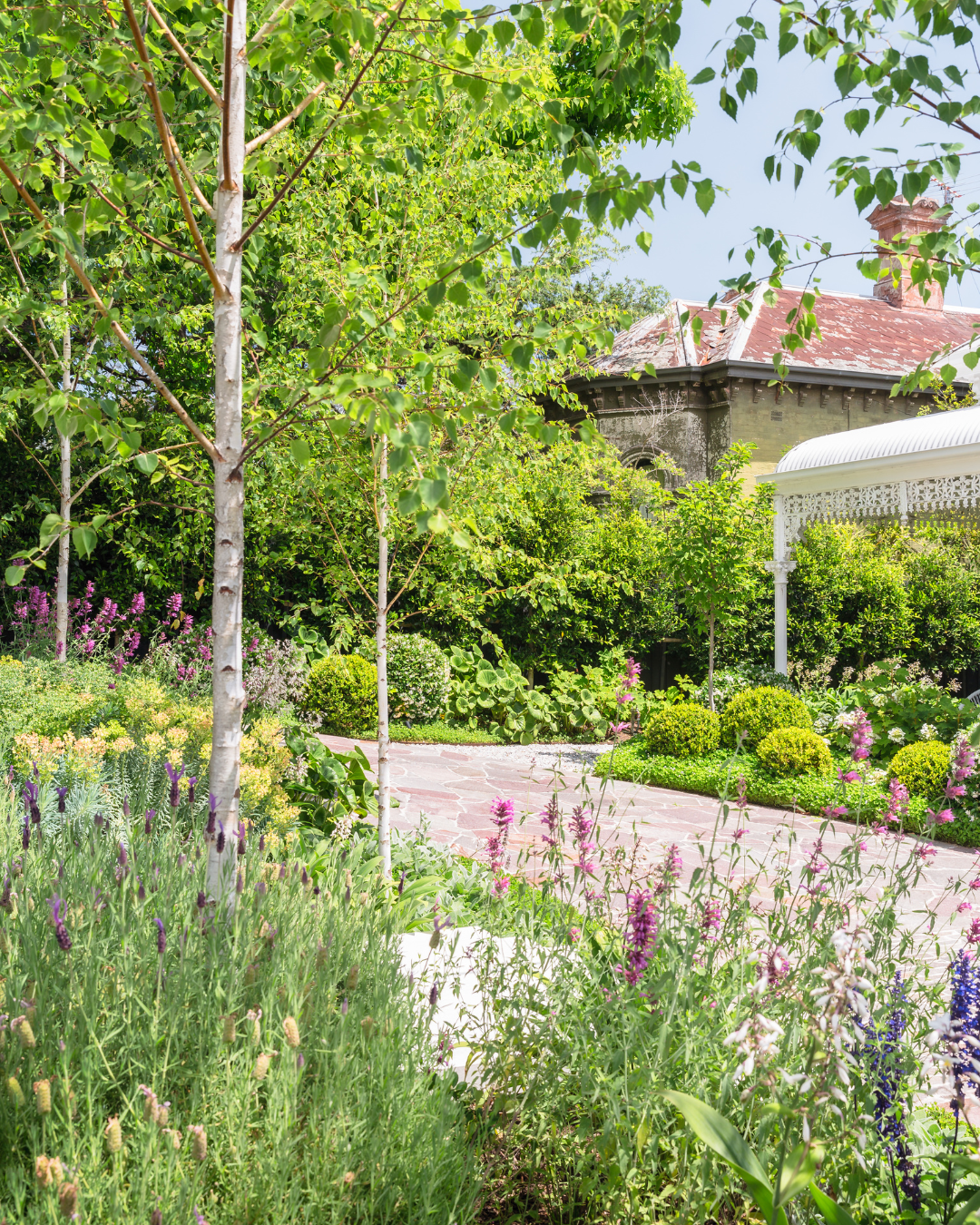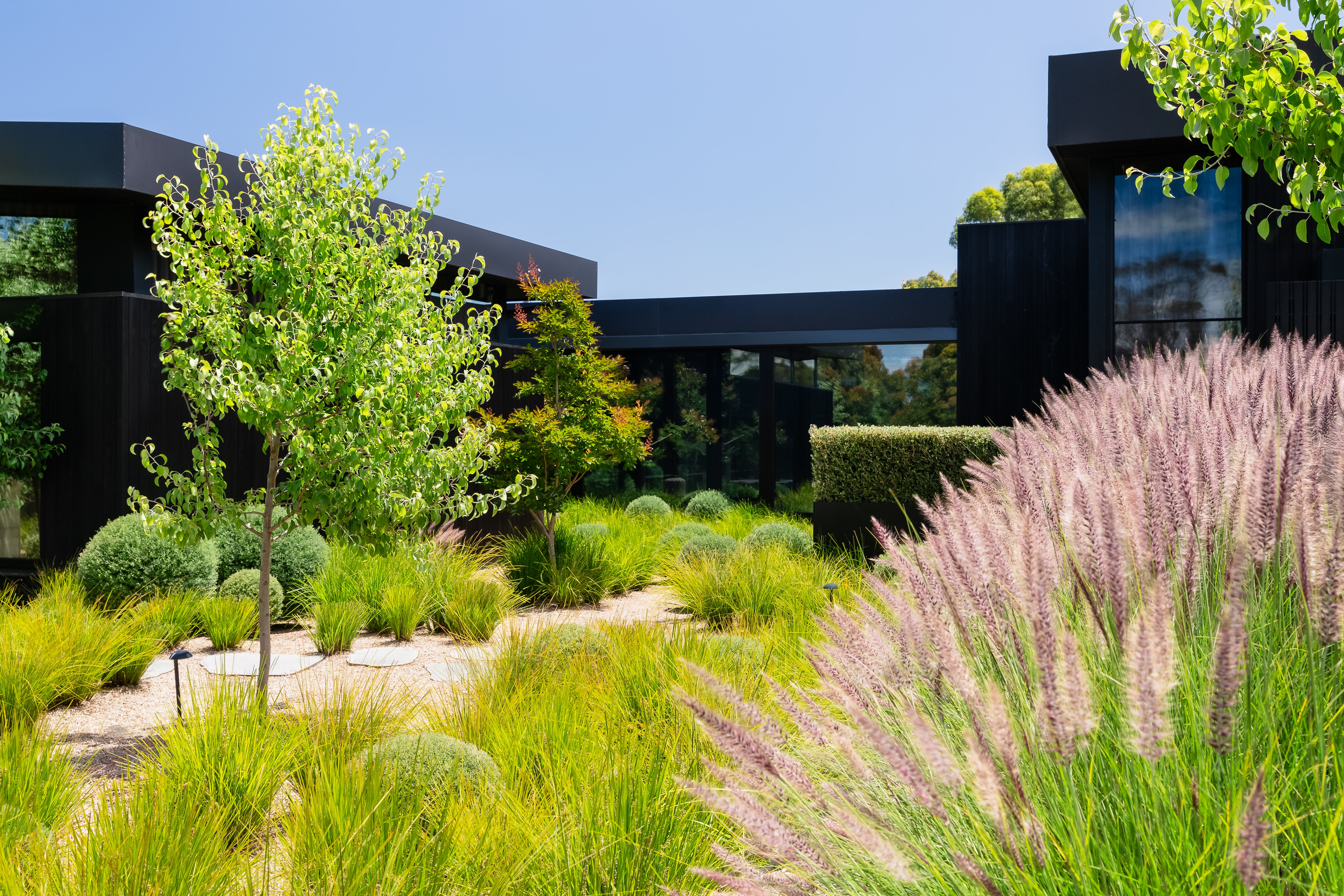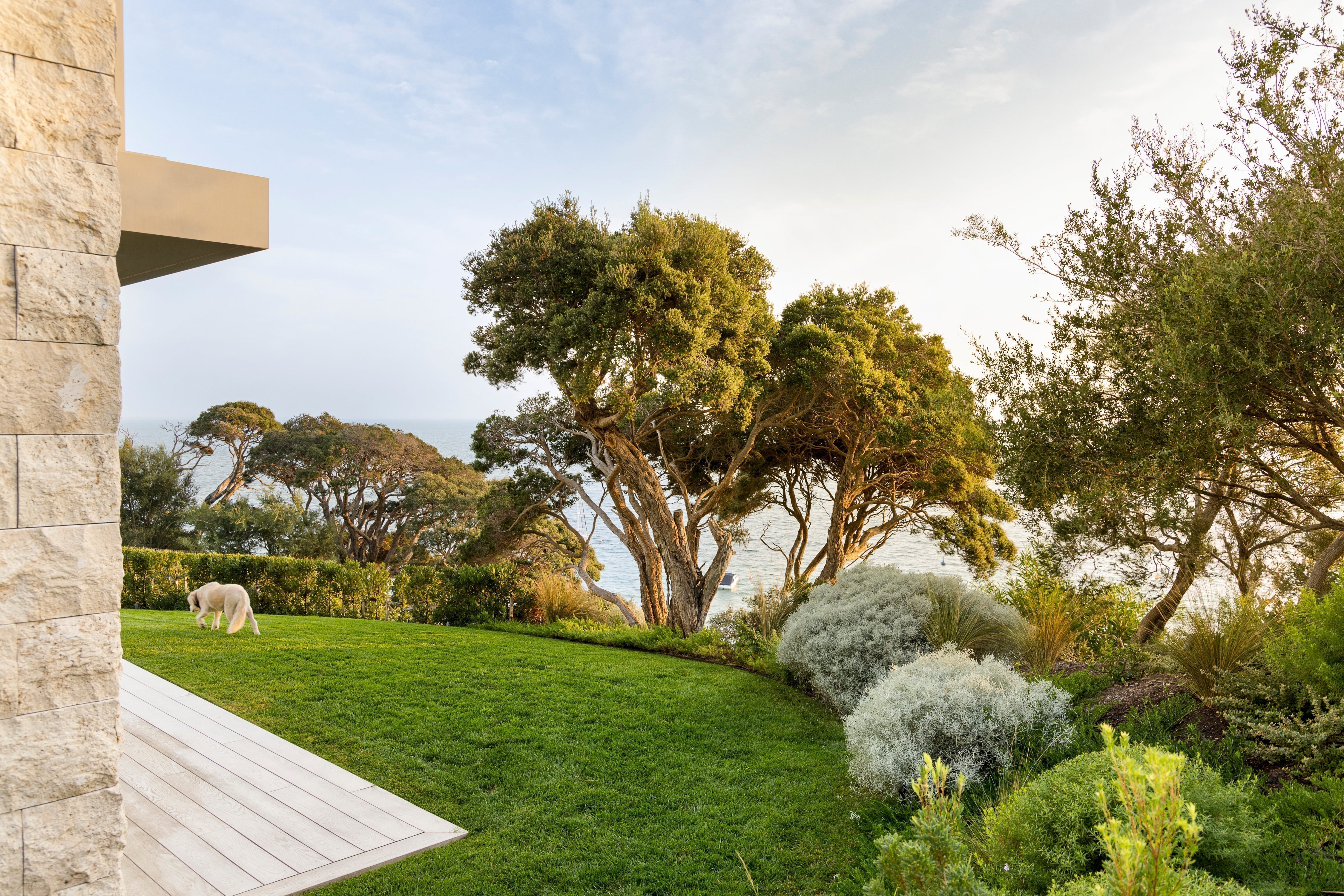
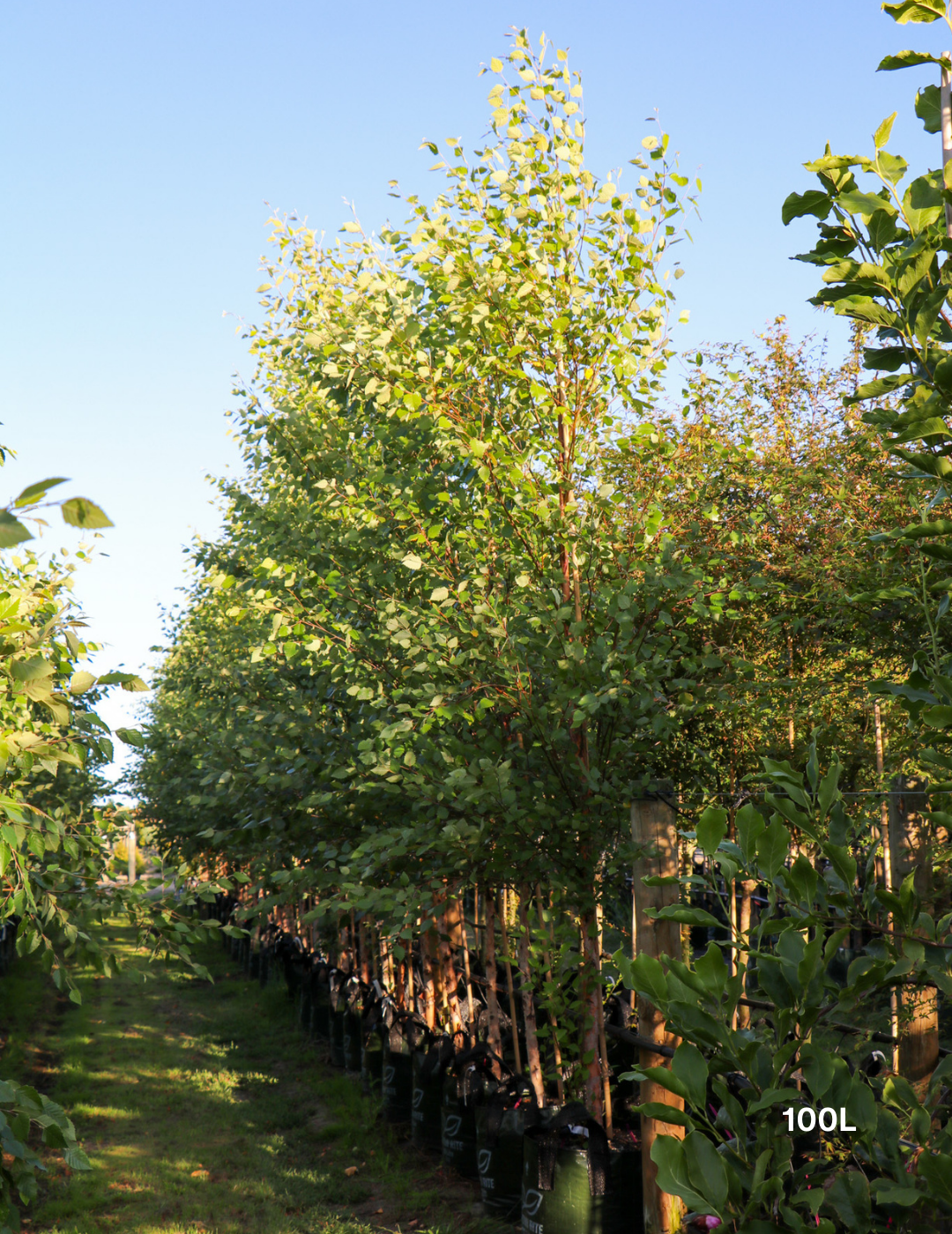
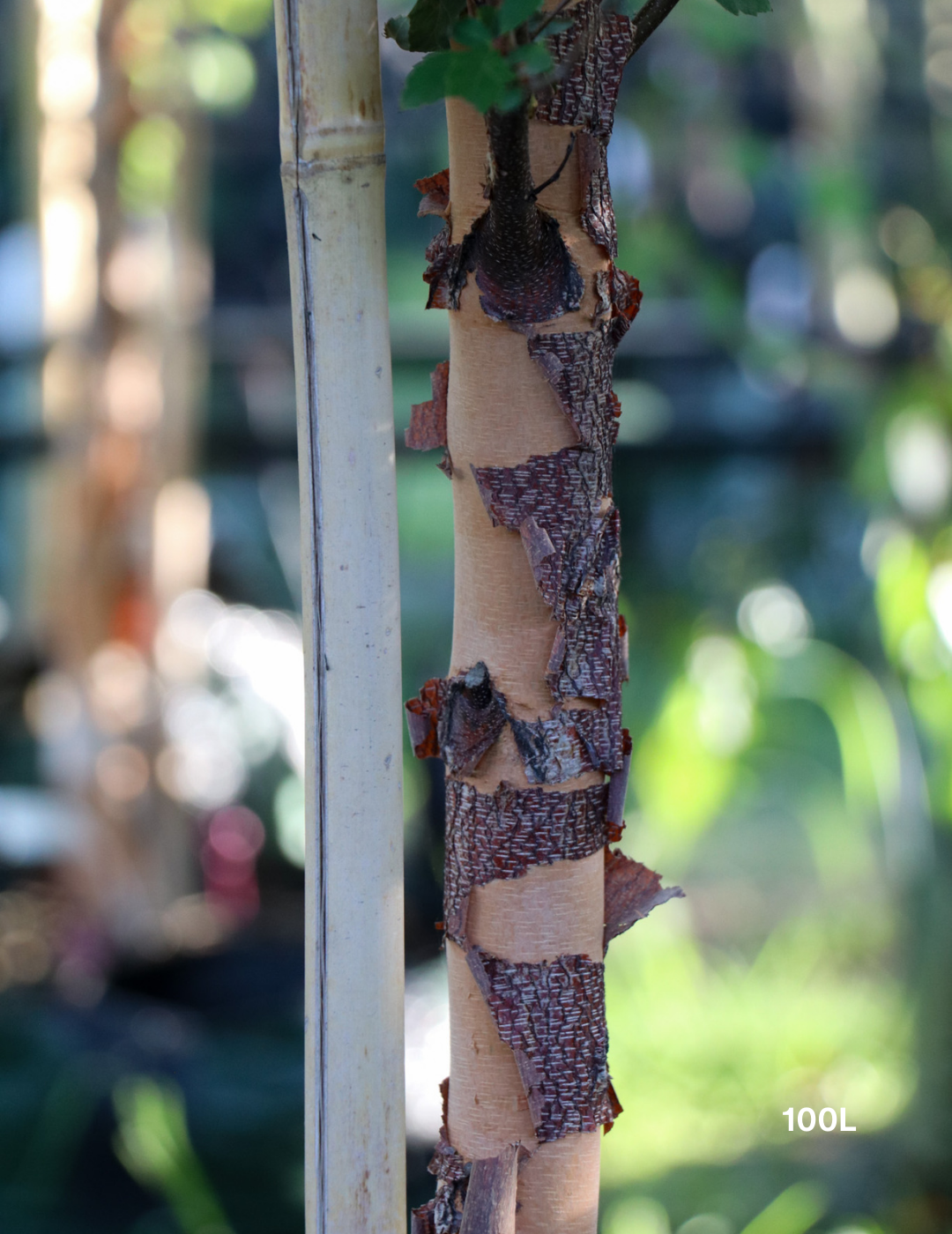
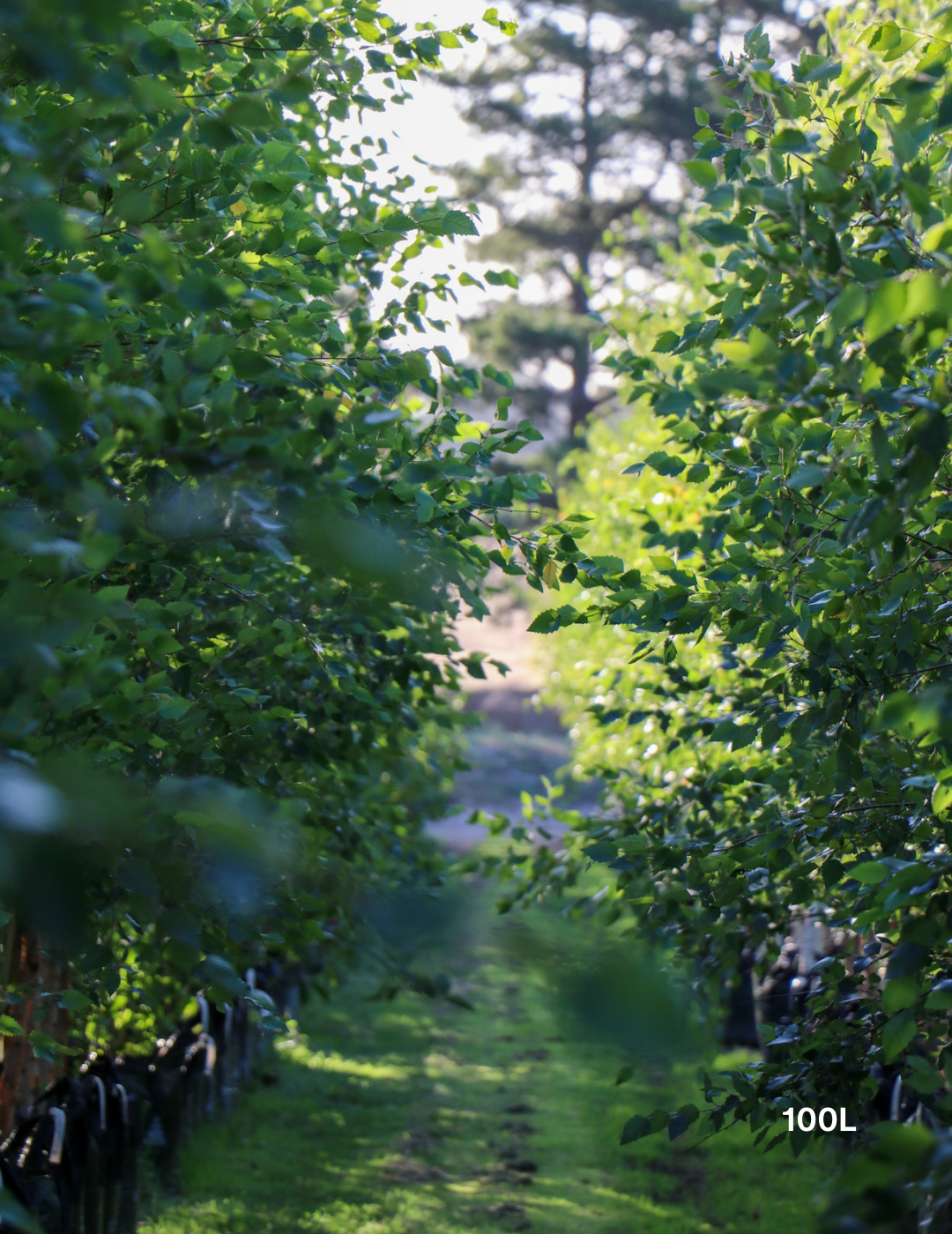
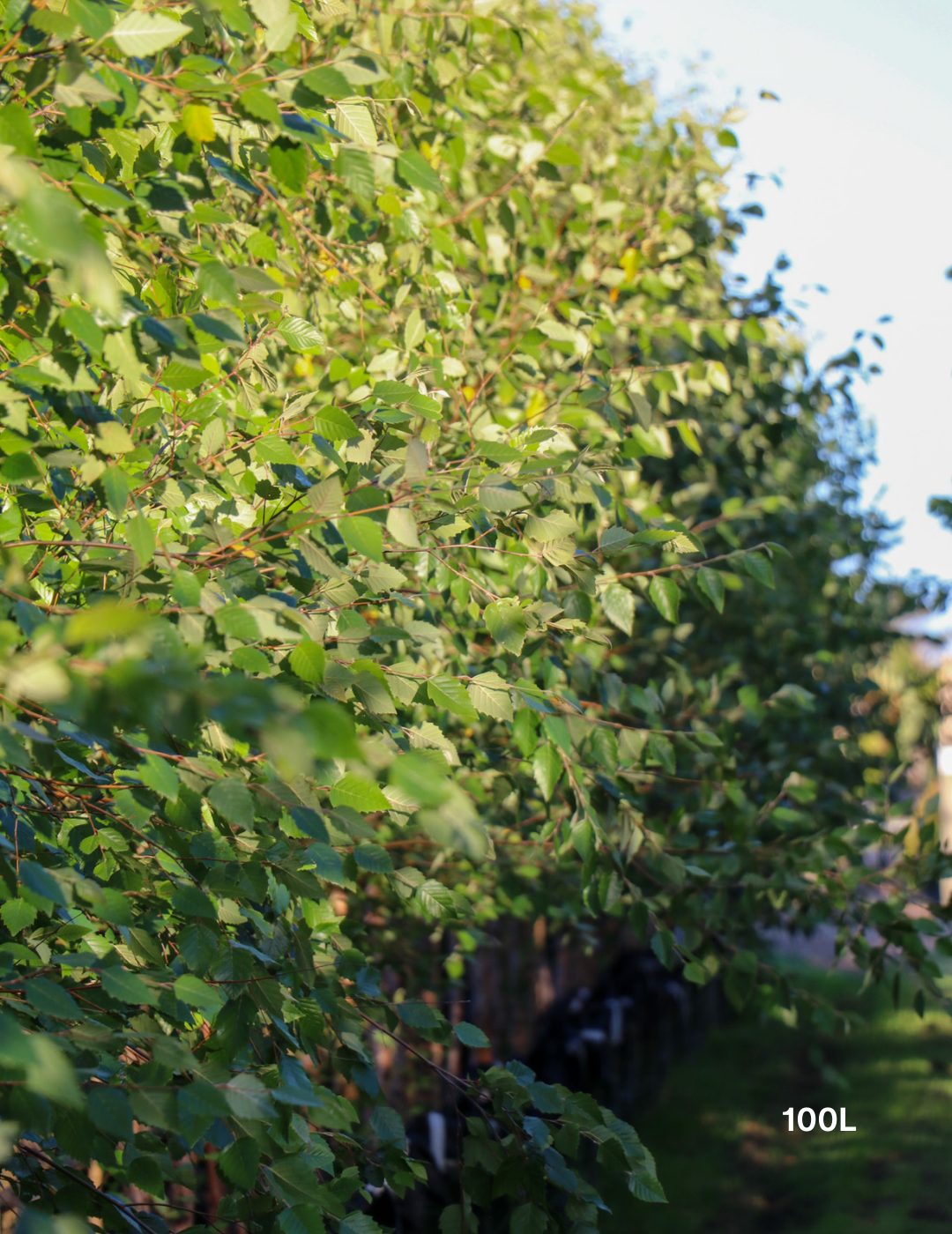
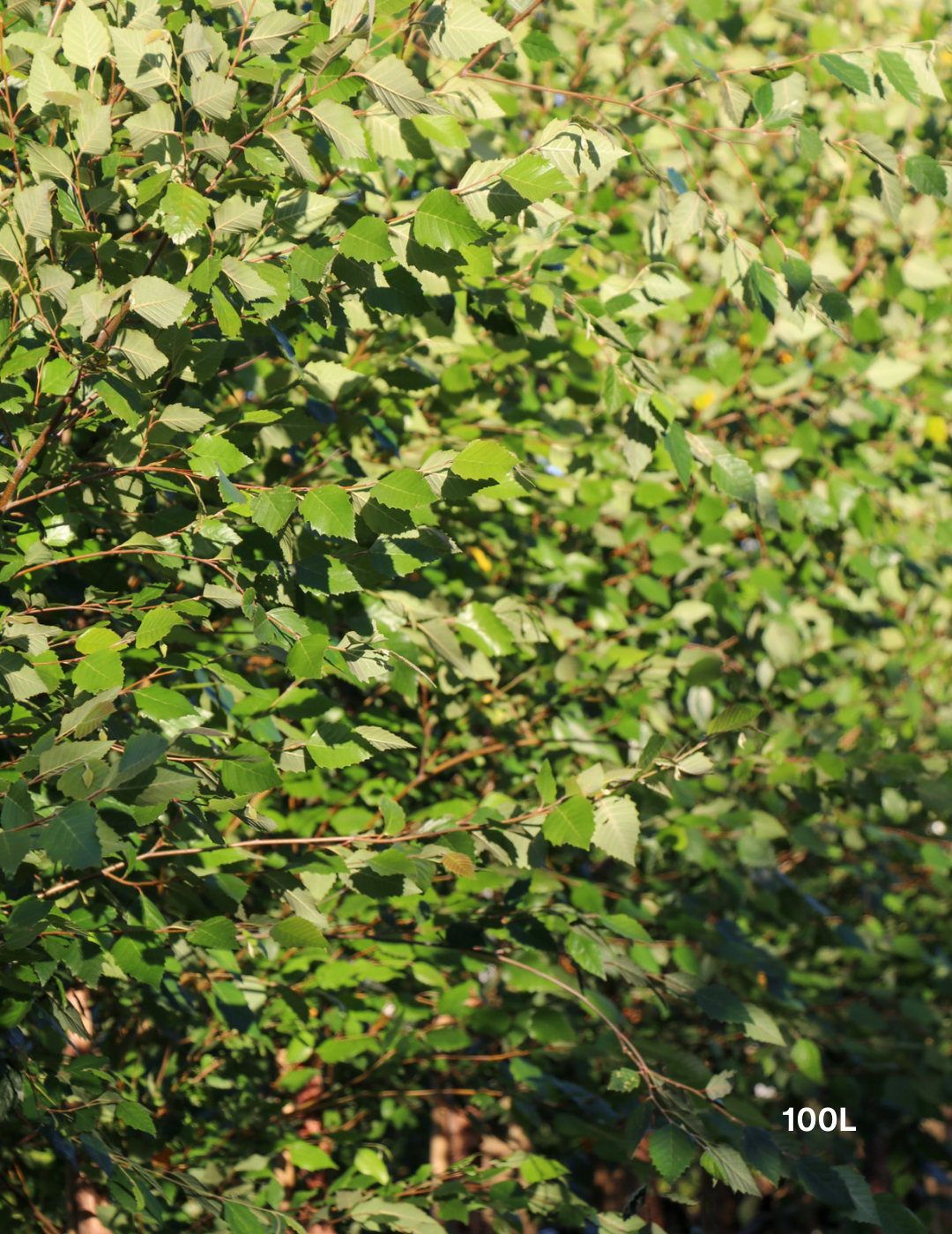
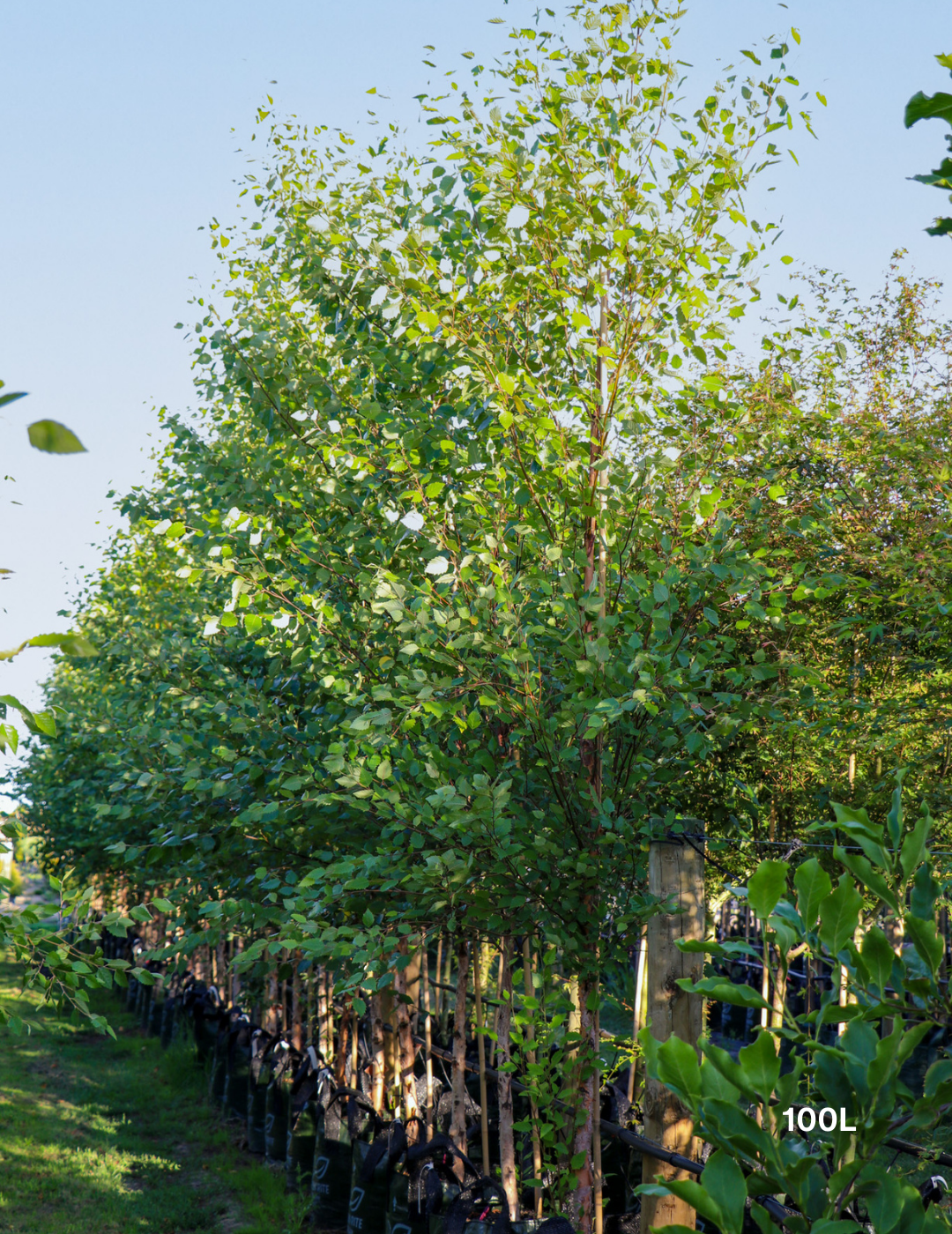
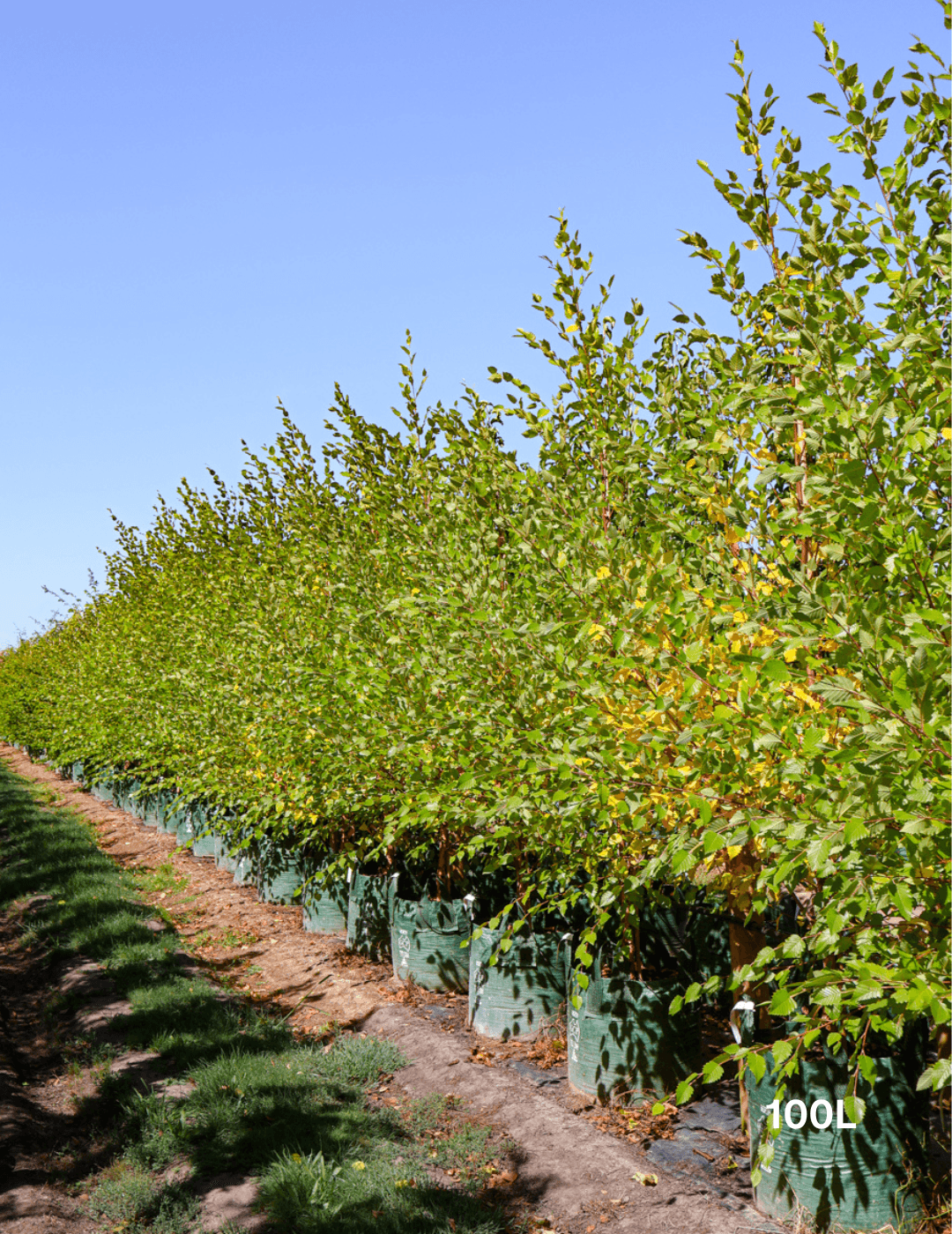
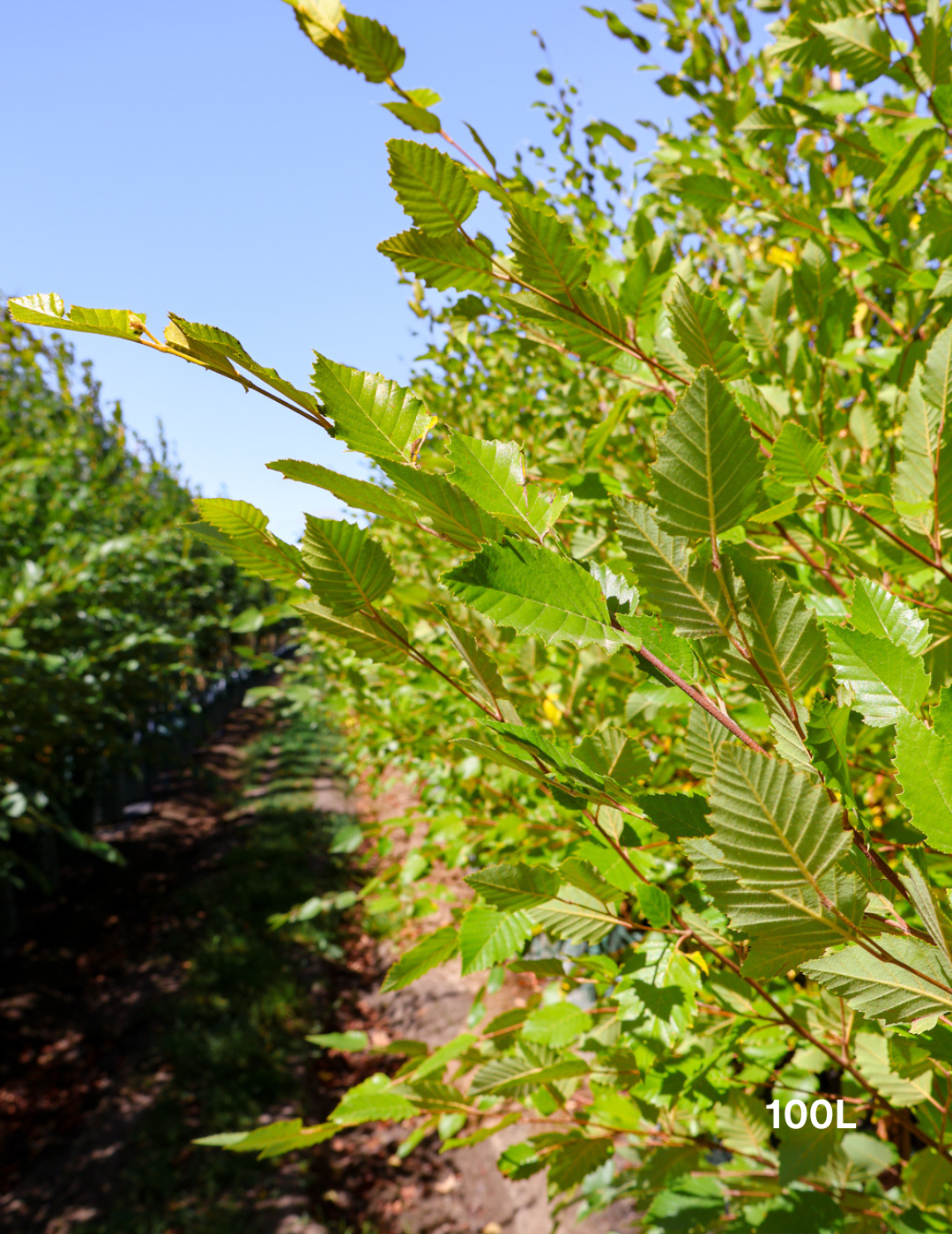
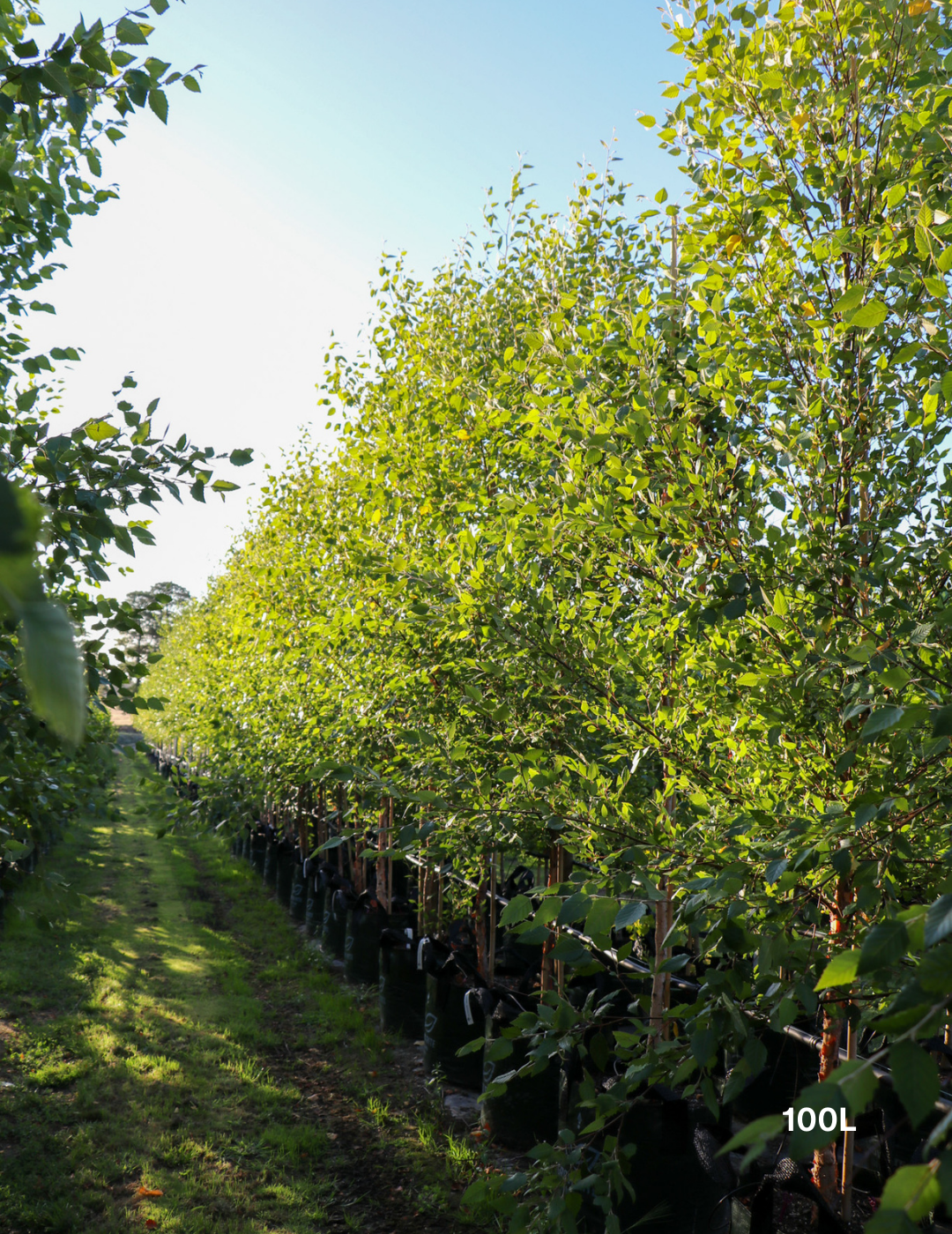
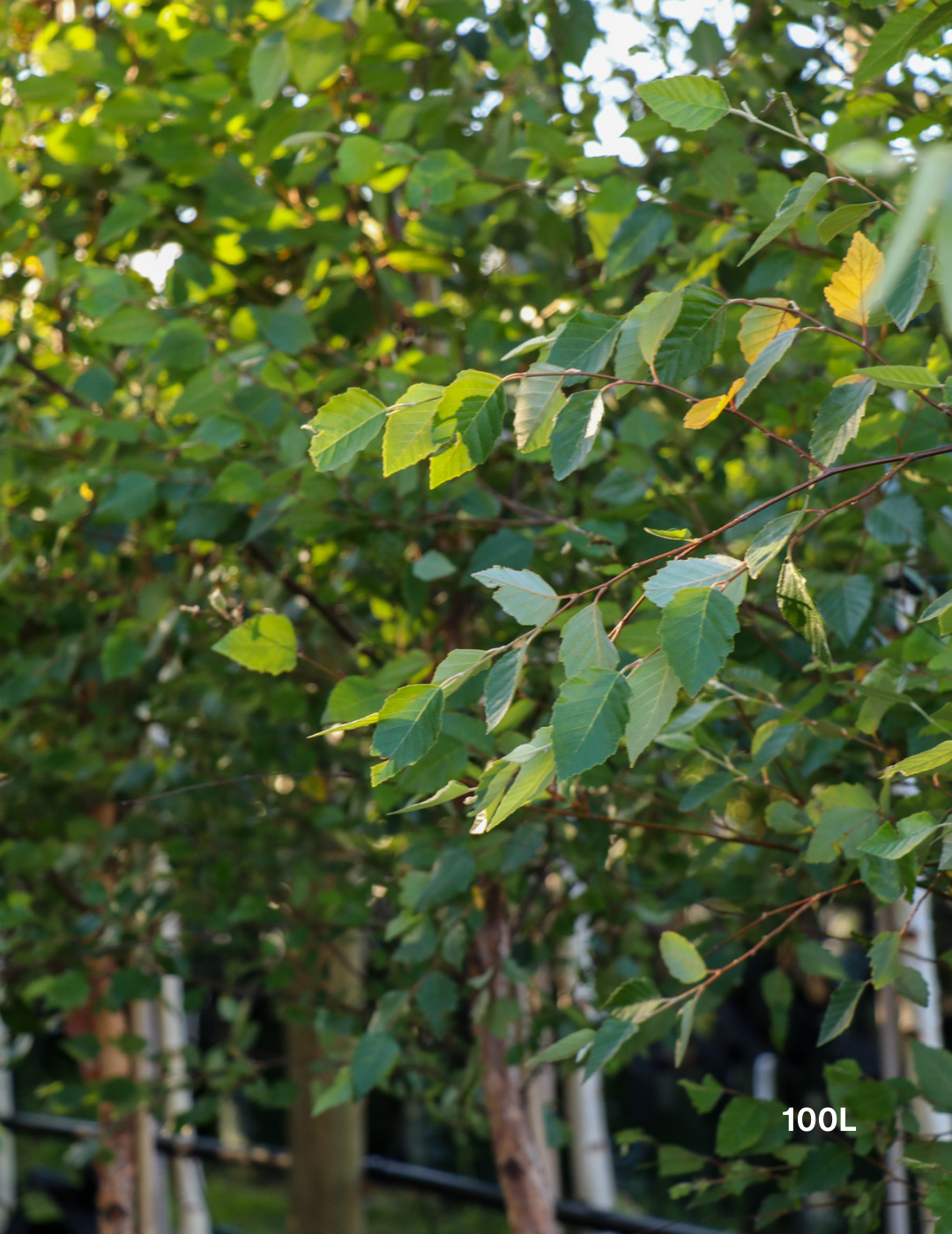
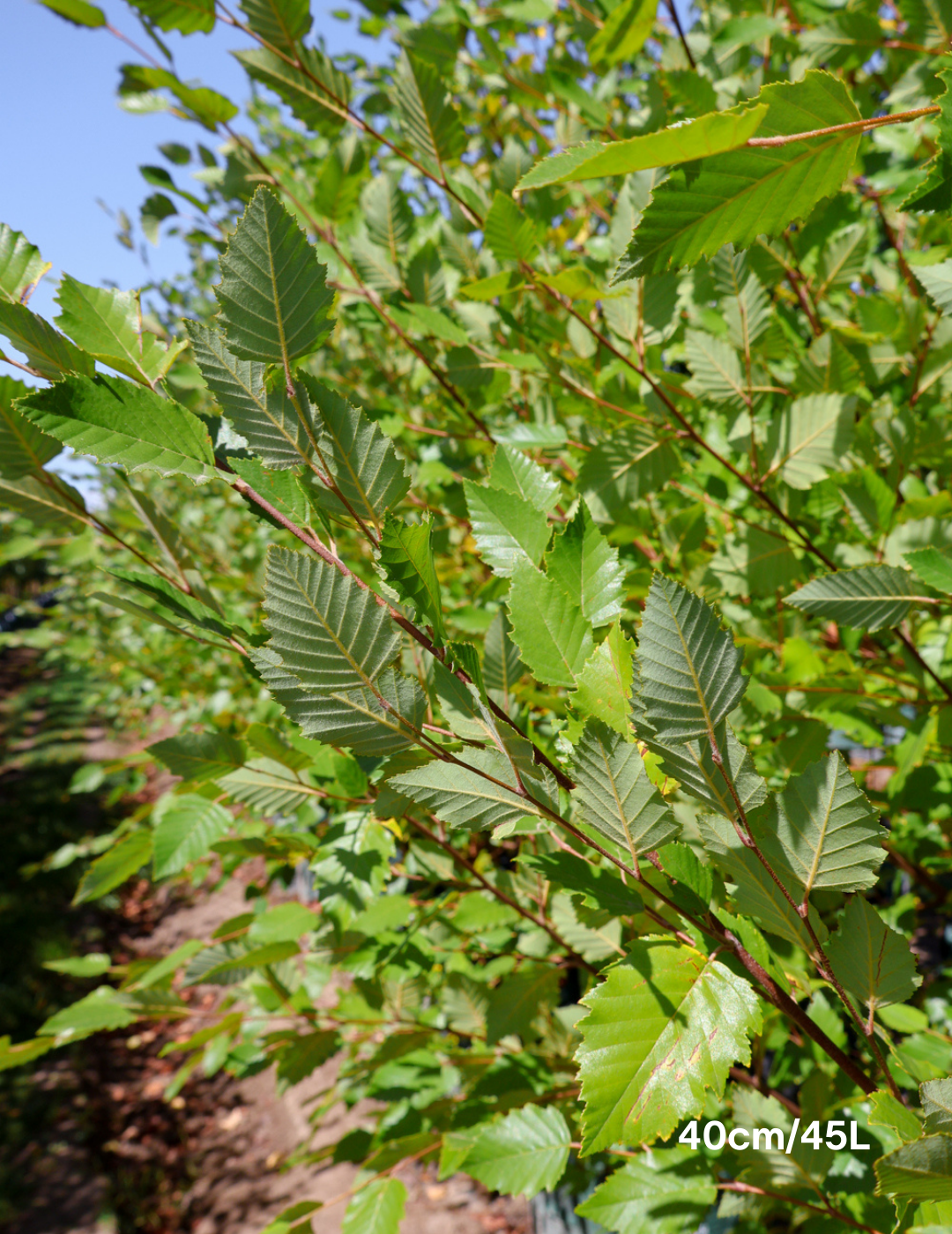
Betula pendula 'Nigra' - Black Birch
- Regular price
- $550.00
- Sale price
- $550.00
- Regular price
-
Learn About Your New Betula pendula 'Nigra' - Black Birch
Betula pendula 'Nigra' - Black Birch is a fast-growing, hardy deciduous tree, valued for its striking dark bark, weeping branches, and vibrant golden autumn foliage. As a unique cultivar of the Silver Birch, it offers year-round interest with its distinctive trunk texture and elegant form. This low-maintenance feature tree is ideal for avenue plantings, screening, and mixed landscapes, providing shade, height, and seasonal colour.
Highly adaptable, Betula pendula 'Nigra' - Black Birch thrives in cool to temperate climates, tolerating frost, coastal winds, and a variety of soil types. It can be planted in clusters for a striking grove effect or spaced further apart to create strong individual specimens. Its upright growth habit with weeping branches makes it a top choice for residential gardens, parks, and streetscapes.
Key Features
- Common Name: Black Birch
- Botanical Name: Betula pendula 'Nigra' - Black Birch
- Mature Height: 10-20 metres
- Mature Width: 6-10 metres
- Spacing: Can be planted in clusters as close as one metre apart for a natural woodland effect or spaced 5-8 metres apart for a more open landscape
- Foliage: Diamond-shaped green leaves that turn golden yellow in autumn
- Flowering: Produces small catkins in early spring
- Growth Habit: Upright with weeping branches
- Evergreen/Deciduous: Deciduous, shedding leaves in winter but maintaining visual interest with textured bark
- Drought Tolerance: Moderate, requiring regular watering when young but becoming more resilient once established
- Sun Requirements: Prefers full sun to partial shade, with stronger growth and better foliage colour in sunnier locations
- Maintenance: Low, occasional pruning to remove dead branches or shape growth
Need Assistance For Your Next Project? Let Us Help.
Evergreen Trees Direct is Australia's unrivaled supplier of the highest quality advanced tree stock. Our extensive supplier network allows us to provide a one-stop shop for all your landscaping needs, no matter how big or small the project. We pride ourselves on exceptional service, ensuring a seamless experience from selection to delivery. Trust us to bring your landscaping vision to life with the perfect trees for any outdoor space. With our unrivaled selection and commitment to service, Evergreen Trees Direct is the top choice for landscapers, property developers, and garden enthusiasts alike.
-
 A layered, resilient coastal garden designed to withstand harsh salt winds and seasonal extremes. This Mornington Peninsula property features a cur...
A layered, resilient coastal garden designed to withstand harsh salt winds and seasonal extremes. This Mornington Peninsula property features a cur... -
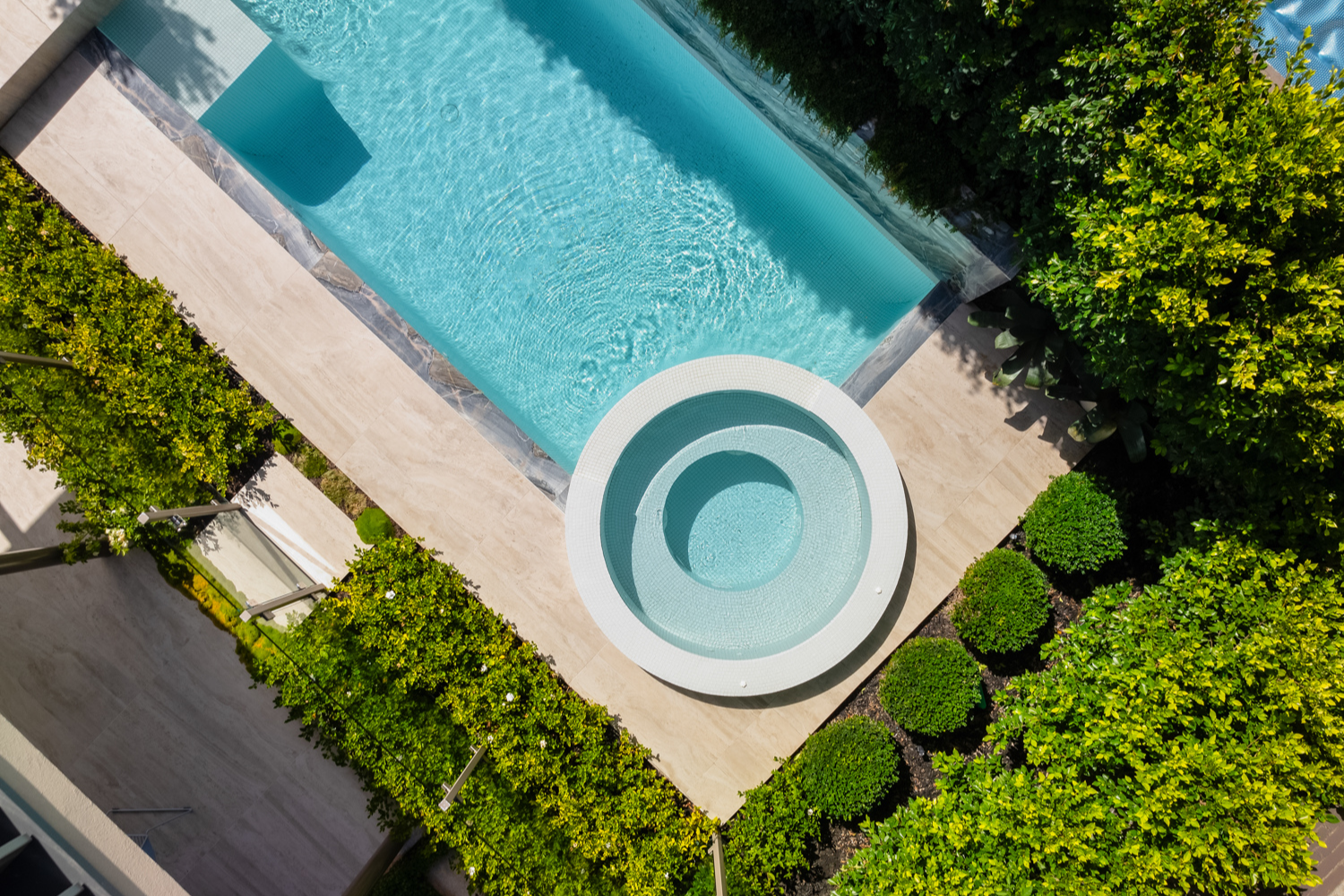
Brighton Project
Presenting our recent project in Brighton, Victoria, landscaped by Jack Merlo Landscape & Design. This modern landscape features a variety of h... -
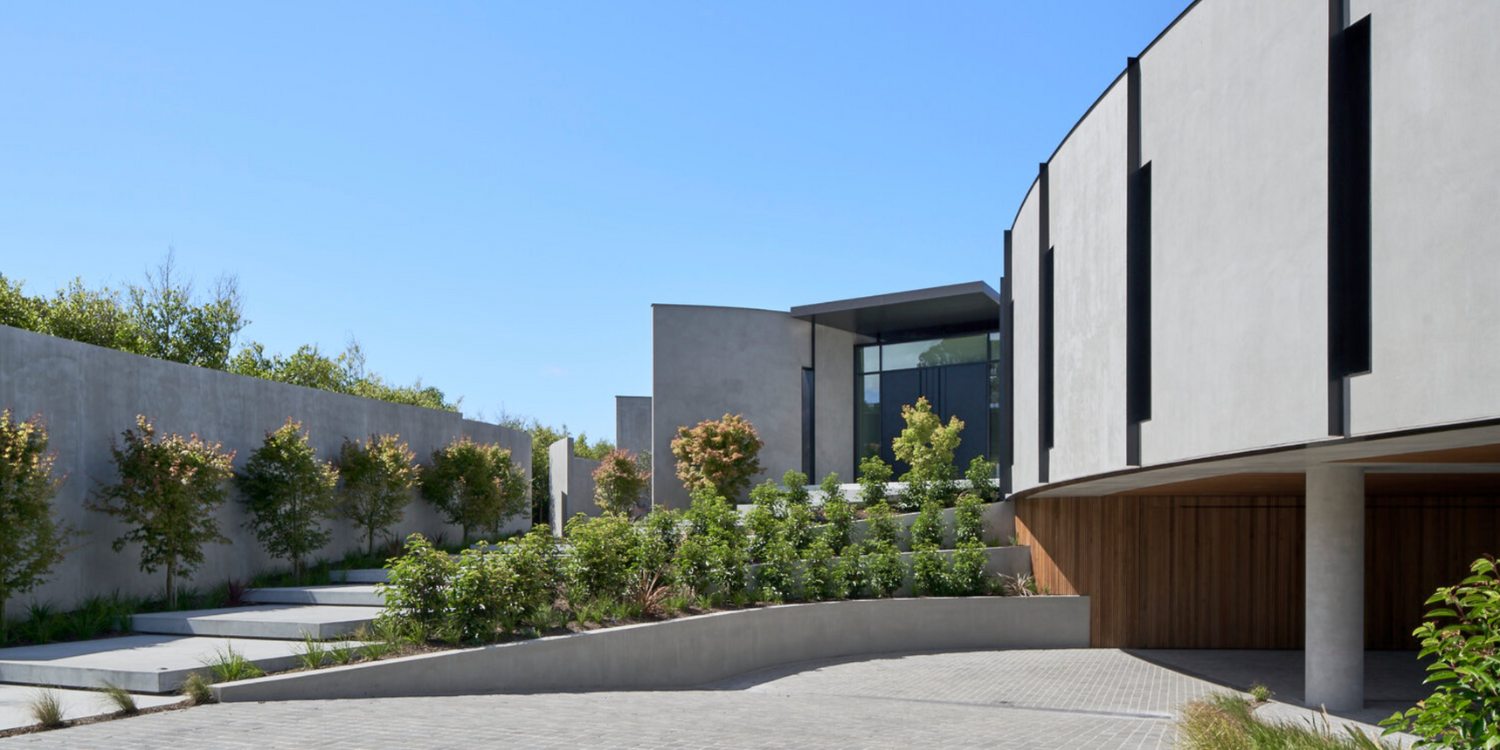
Horizon House, Flinders
Horizon House in Flinders blends nature with bold architectural design, using natural elements to enhance its modern aesthetic.Acer Palmatum (Japan...
